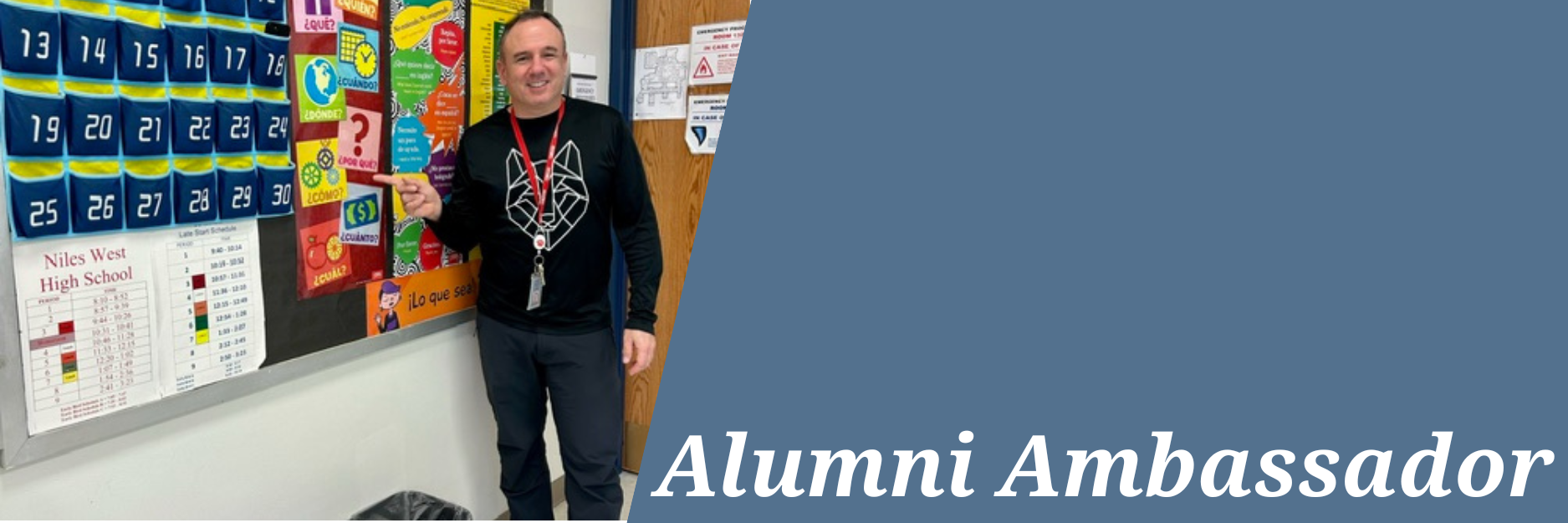From his very first English Language Specialist project in 2006 in Turkiye, Alumni Ambassador David Malatesta knew he’d found personal and professional gold. “With that first Specialist project, I got absolutely hooked on this kind of cross-cultural teaching experience,” Malatesta said. “I was blown away by the experience of being so deeply immersed in another culture, working with students and teachers in different contexts that also resonated strongly with my teaching context at home.” As a decades-long high school teacher in Illinois, Malatesta has found that spending time and working in different countries has deepened his understanding of his students at home, too. “Through my Specialist projects, I’ve been able to learn about the native cultures of many of my students back in Illinois, and this helped me connect with them on a completely different level,” Malatesta said.
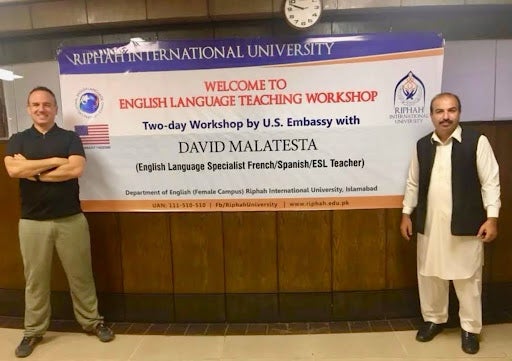
Malatesta with his Pakistani colleague at their teacher training workshop in Islamabad in 2018
Utilizing his K-12 teaching skills, Malatesta has helped teachers abroad who also work with teenagers, primarily in the English Access Microscholarship Program. As a leader for thirteen teacher training camps in a range of countries, including Brazil, Cyprus, Jordan, Pakistan, and Paraguay, Malatesta has made significant contributions to the success of the Access program, which began just two years before his first project. In this role, he has mentored and trained thousands of local teachers, as well as Peace Corps volunteers, and English Language Fellows, each of whom then returned to their schools and universities with new approaches in their own teaching and training practice.
The structure that Malatesta created for these camps—leading teacher training sessions in the mornings and having the teachers try out the new activities in the afternoon—has enabled him to observe the direct influence of his instruction in real time. “This has been a great way to see what adjustments I can make in my trainings,” Malatesta said. “Observing teachers in other countries has also helped me understand that they face the same challenges I have in my school in Illinois, such as student motivation, learners with mixed ability levels in one class, and limited support for teachers. This understanding has given me a feeling of solidarity with many teachers across the globe.”
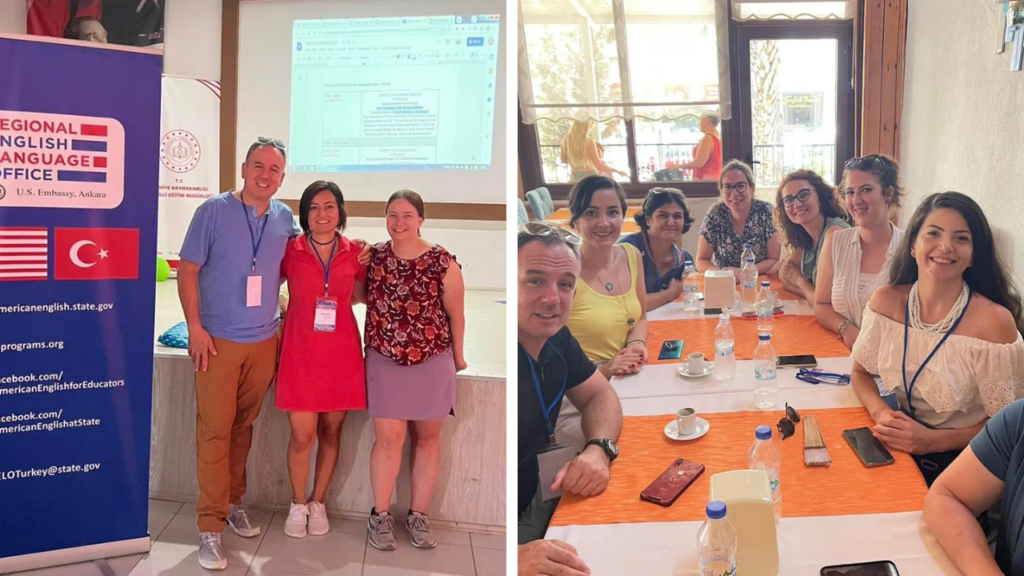
One of Malatesta’s most memorable Specialist projects was serving as director for a Tolerance Camp in Turkiye with Armenian teachers, Greek students and teachers, Turkish students and teachers, and students from the U.S. Malatesta led two two-week camps for this project with over 130 participants in each. To prepare for the camp, he created a curriculum with interactive teaching activities and various teaching methodologies to train the new teachers in the morning sessions, and an afternoon schedule of physical activities and arts and crafts, such as a kickball tournament and a bracelet-making session. “That was an amazing experience for me, learning everything that goes into running a camp and working with diverse groups that have historically faced conflicts,” Malatesta said. “It really made me grow as a leader and a problem-solver.”
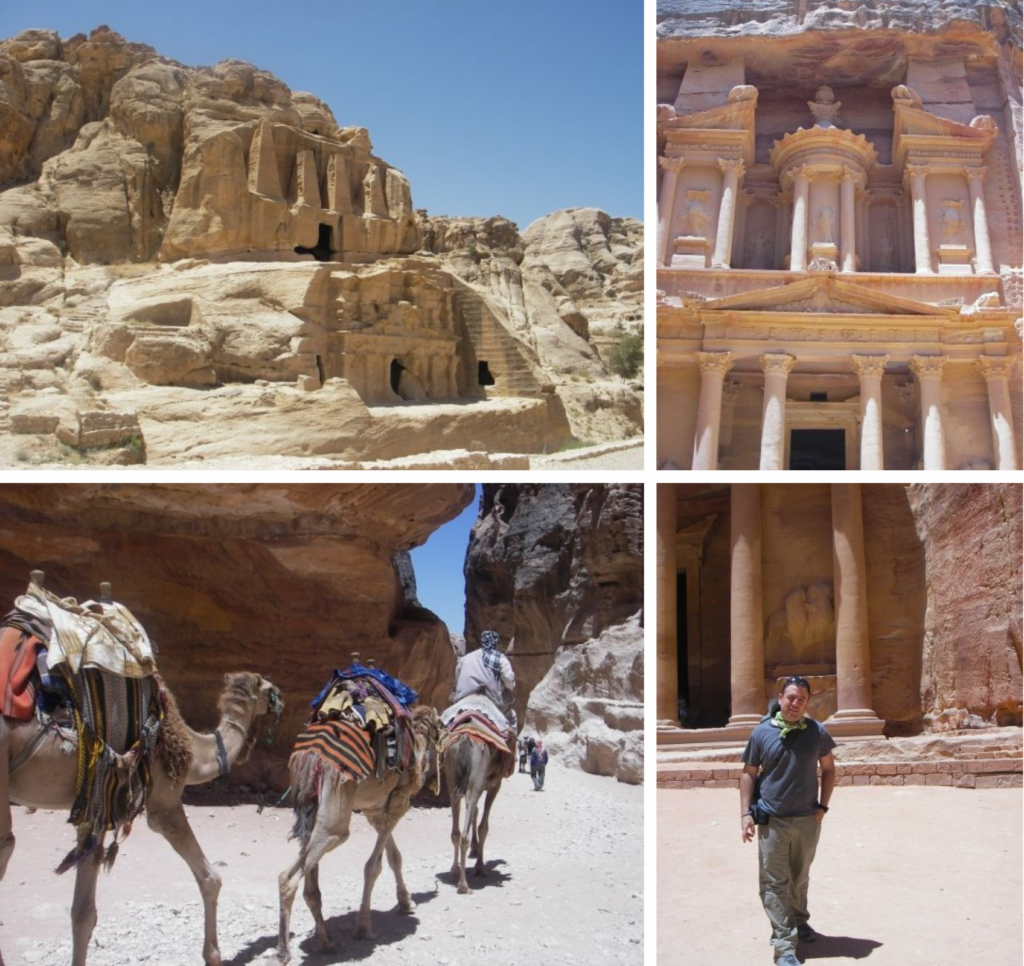
For an Access camp in Jordan in 2009, Malatesta further forged his mettle as a camp director by working in the sweltering desert sun. “Running the Access camp in 110-degree desert heat was certainly a novel venture!” Malatesta said. Following morning language lessons, he led a wide variety of creative and athletic community-building activities, including making model airplanes and multi-media self-portraits, and playing kickball and ultimate frisbee. For a ‘bedazzling’ activity, Malatesta taught his students how to use a stone-punching device to add studs and rhinestones to hats and garments. “The students loved this creative activity and it was totally new for them – and for me!’ Malatesta said.
Following his camp, Malatesta journeyed to the ancient archaeological site of Petra, known as the ‘Rose City’ for its alluring red brick. After passing through a wide valley, Malatesta traversed the narrow and darkened Siq gorge for a mile before alighting from the tunnel to behold the magnificent Al-Khazneh ‘treasury’, an elaborate tomb carved out of a sandstone cliff. “It’s a truly remarkable sight,” Malatesta said. “I’d always wanted to visit Petra, and I felt fortunate to finally have the chance.”

As a professional musician who plays both electric and upright bass for a range of musical styles —including jazz, classical, gospel, blues, rock, country, merengue, and salsa—Malatesta enjoys learning about local music when he travels, collaborating with local musicians, and incorporating music into his teaching. He contributed several musical activities to The Monster Book of Language Teaching Activities, a project involving numerous Specialists as contributing authors.
Serving as the plenary speaker for TESOL Paraguay for his Specialist project in 2008, Malatesta played with a local jazz group to show teachers the connections between improvisation and teaching and learning. “Collaborating with musicians mirrors teaching a class, where we’re all in it together, improvising and negotiating for meaning, but you also need time to work alone,” Malatesta explained. “To demonstrate this, we alternated playing solos and playing melodies together, giving each other time to improvise, and then coming back together at the end. Music, like language, can bring people together, but it takes work to make it beautiful. From chaos comes order and harmony!”
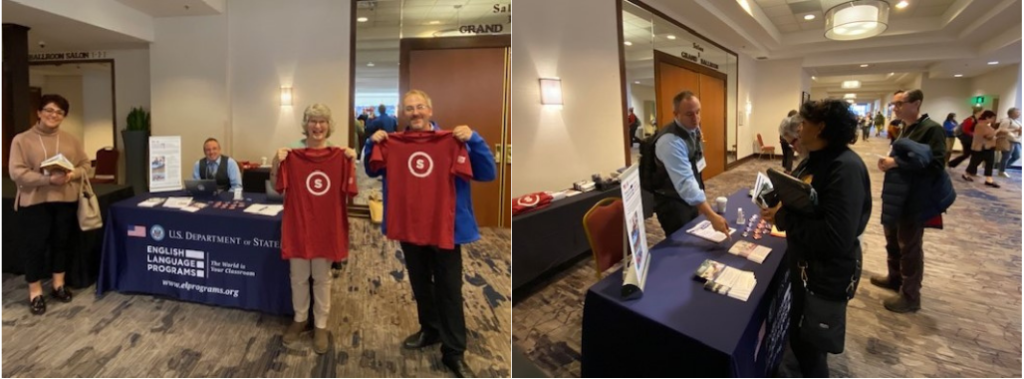
Now in his 27th year as a teacher of Spanish, French, and English for Speakers of Other Languages at Niles West High School in Illinois, Malatesta is nearing retirement and excited about the next chapter in his life. He is exploring new ways to further incorporate his life as a musician into the life of public diplomacy he’s experienced as a Specialist. His time as an Alumni Ambassador attending conferences has both further expanded his ideas of career possibilities, such as collaborating with musicians in the American Music Abroad exchange program, and given him the chance to share new opportunities, too. “The contacts, the networking, the ideas sharing, it’s all been very valuable for me,” Malatesta said. “I’ve found that English Language Programs is new to many teachers, and I love sharing with them how the program has helped me grow so much as a teacher and as a person over the years.”
Stay tuned for our next featured Alumni Ambassador story with Lina Jurkunas.

